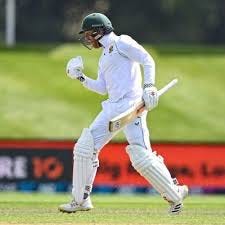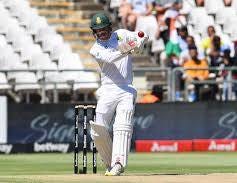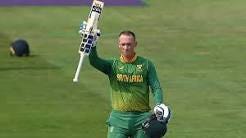A working life in cricket would be infinitely simpler and clearer if South Africa’s professionals would just stop trying so hard and caring so much about first-class cricket. If everybody could just agree that T20 cricket is the way forward and the future, it would save a lot of time and money.
There is no shortage of excitement about the abbreviated game when its time comes in the season. All the players enjoy it (even those who aren’t naturally suited to it) and it is easily digested by spectators who are, more often than not, entertained by plenty of boundaries and a close finish without being required to invest a whole day of their lives to watching it.
The players’ effort and commitment to the CSA 4-Day Cup has been evident throughout the summer culminating in a cracking final round of group matches which concluded on Saturday (or Friday in Cape Town) during which Western Province barged their way past the Hollywoodbets Dolphins and into this week’s final with the most commanding performance of the competition so far.
Kyle Verreynne is one of the country’s most driven players and is an inspirational leader. He didn’t hope or encourage his team to raise their collective game for the bonus-point laden win they needed to sneak into the showpiece, he demanded it. And they delivered with a whopping innings and 259-run demolition of the Dolphins at Newlands, the captain amongst three centurions before left-arm spinner Kyle Simmonds claimed 7-39.
If it sounds like South Africa’s cricketers might be ‘out of sync’ with world trends by still holding first-class cricket in the highest esteem, developments in India last week might dispel those doubts.
For all the talk of the BCCI’s obsession with making money from the IPL and dominating the global game, it might be noted that the administrators of India’s domestic game remain fully cognisant that the roots of their largesse remain firmly planted in exactly that – their domestic game. Their first-class game.
Dashing T20 star, Ishan Kishan, has refused to play Ranji Trophy Cricket in recent weeks and others have apparently followed his example, focussing instead on the pay-cheques available in the IPL. Perhaps the BCCI were awakened to this problem, rather than always aware of it, but their response was strict.
The trend of prioritising IPL was “cause for concern and a shift that was not anticipated,” said BCCI Secretary, Jay Shah, in a letter to the country’s professionals. “Domestic cricket has always been the foundation upon which Indian cricket stands, and it has never been undervalued in our vision for the sport.
“It is essential to recognise that domestic cricket forms the backbone of Indian cricket and serves as the feeder line to Team India,” Shah said. “Our vision for Indian cricket has been clear from the outset [a tacit admission that it has not] – every cricketer aspiring to play for India must prove themselves in domestic cricket … which remains a yardstick for selection. Non-participation in domestic cricket will carry severe implications,” Shah said.
It sounded like a threat – because it was a threat. Not because Shah or the BCCI harbour any romantic or nostalgic notions of preserving an endangered species, but because they genuinely recognise and acknowledge that the attributes players gain from multi-over cricket are what contributes most to their ascension to IPL success.
It may seem counter-intuitive that long days of grind and toil in front of small, empty stands could contribute significantly to success in the high-pressure, helter-skelter of the IPL cauldron, but it is the making of most players. It is exactly that background which enables them to focus on the job rather than the occasion.
This is not to say that every player ‘should’ play first-class cricket at every stage of their careers. WP’s hosts for the final, the Lions, will (presumably) be without batting stalwarts Rassie van der Dussen and Reeza Hendricks who did not play in the final match against the Momentum Multiply Titans in favour of significantly more lucrative assignments in the Pakistan Super League.
It would be an easy bet to suggest that all of their cricketing instincts would have led them to play for the Lions, especially with the final at the Wanderers. But both are well into their 30s and the US Dollar, understandably, dictates that head rules over heart.
Currently, first-class cricket in South Africa is regarded as nagging illness by its national administrators. It’s understandable. The number of games has been cut to the bare minimum for it to remain meaningful and the prospects of a competitive Test team in future years are bleak.
The really hard truth, and most unpalatable and incomprehensible to those who run the game from its financial bottom line, is that the bottom line will sink out of trace without the unwanted expenditure on real cricket. Don’t take it from me. Ask the players.







